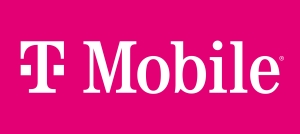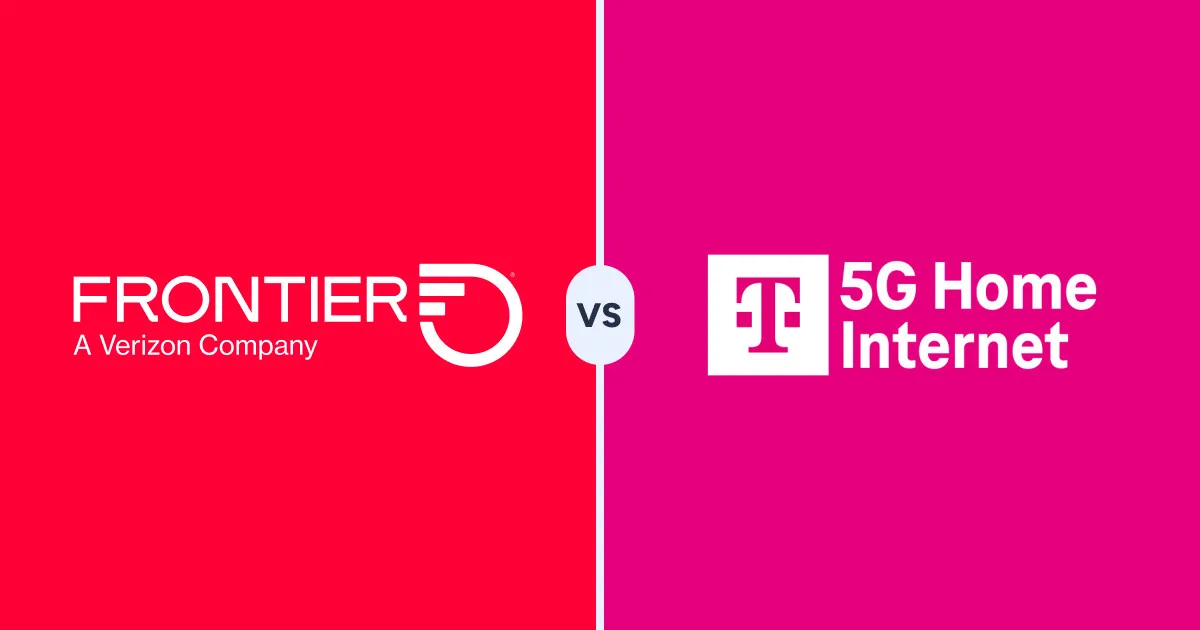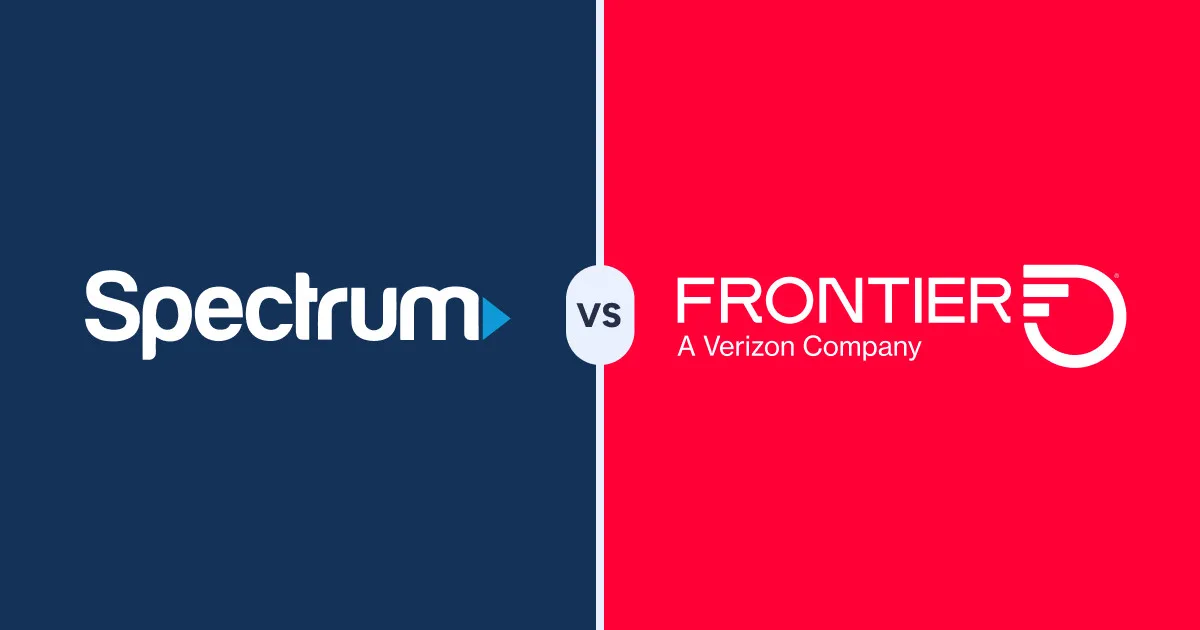AT&T Wireless vs. T-Mobile: Which Cellular Provider Is Best for You?
Pricing, data, 5G—oh my! Here's how to decide between AT&T and T-Mobile.
Jan 16, 2026 | Share
Provider Comparisons (Versus)
-
Best for speed

- Unlimited plan prices: $40.99–$85.99/mo.*
- Family plans: $30.00–$50.99/mo. per line for4 lines
- Video streaming: SD, HD, 4K UHD
- High-speed data: Unlimited
- Wireless standard: 5G LTE (mm-wave, C-band, sub–6 GHz)
- Hotspot data: 5–60GB
-
Best for 5G
- Unlimited plan prices: $50–$100/mo.** (for 1 line)
- Family plans: $100.00–$330.00/mo. for 2–6 lines
- Video streaming: SD, HD, 4K UHD
- High-speed data: 50GB–Unlimited
- Wireless standard: 4G LTE, 5G (sub–6 GHz)
- Hotspot data: 5–50GB
Compare AT&T Wireless and T-Mobile head-to-head
T-Mobile and AT&T are two of the biggest cellular carriers in the country, and you’re going to get a similar deal whichever you choose. 5G coverage, unlimited data, bundle deals with internet plans—they’ve got it all.
But there are some minor differences between T-Mobile and AT&T that set the two apart. T-Mobile, for example, has a much larger 5G network—meaning you’re likely to get faster data speeds if you’re using your phone in major cities and metro areas. T-Mobile also has slightly lower prices on two of its unlimited plans, although it also has higher prices for its flagship offerings.
AT&T, on the other hand, has slightly better 4G LTE network coverage nationwide. Although 5G has gotten a lot of hype in recent years, 4G remains the dominant cellular technology, and AT&T’s 68% coverage (compared to T-Mobile’s 62%) makes a noticeable difference, especially if you’re traveling through rural areas where cellular coverage normally gets spotty.
Still not sold on which carrier to pick? Read on for our full breakdown of the wireless carriers’ capabilities, plans, and prices.
Pro tip:
Internet speeds can be inconsistent on cell phones because you’re working over a wireless network, but you can always take a speed test to see how much bandwidth you have.
Taking a speed test lets you know if you’ll have the firepower necessary to do something complex on your phone, like attending a Zoom meeting or downloading a large file.
On this page:
Unlimited plans | Family plans | Prepaid plans | Devices | 5G availability | 4G and 5G speeds | Data caps and premium data | Coverage
On this page:
Pros and cons: AT&T Wireless vs. T-Mobile

 Pros:
Pros:
- Affordable prices
- C-band 5G access
 Cons:
Cons:
- Slower 5G speeds
- No premium data on Unlimited Starter plan
 Pros:
Pros:
- Truly unlimited data on Experience More
- Cheaper plan options
 Cons:
Cons:
- Slightly smaller overall US network
Want to see what kinds of internet you can get in your area?
Enter your zip code below.
Unlimited plans and pricing: AT&T vs. T-Mobile
AT&T and T-Mobile both offer unlimited cellular plans—by far the most popular kind of phone plan you can get. An unlimited plan gives you unlimited text and voice all month long, along with unlimited data (although your speeds are usually slowed down once you hit a certain limit).
What you get is more or less the same from both providers, but there are some crucial differences—for example, some of T-Mobile’s unlimited plans cost a little less while giving you more premium data.
What is premium data?
Premium data is a limited amount internet data that runs over 4G LTE and 5G networks, giving you speeds in the range of 30–100+ Mbps. When you run out of premium data, your connection is throttled. While plans that include some form of premium data are often called “unlimited” because you can technically still use data at a snail’s pace once you use your premium data for the month, that’s just how most data caps work. No providers completely cut you off in this day and age.
The only exceptions to this rule are with T-Mobile’s Experience plans and AT&T’s Unlimited Elite plan, both of which put zero restrictions on premium data use. You’ll get premium data all month long with no slowdowns whatsoever.
AT&T Wireless unlimited plans and pricing
| Package | Price | Premium data | Premium hotspot data | Video streaming |
|---|---|---|---|---|
| AT&T Unlimited Starter® SL | $65.99/mo. | Unlimited* | 5GB | SD |
| AT&T Unlimited Extra® EL | $75.99/mo. | Unlimited* | 30GB | SD |
| AT&T Unlimited Premium® PL | $85.99/mo. | Unlimited* | 60GB | HD, 4K UHD |
Data effective as of 7/26/2024. Pricing and speeds are subject to change. Not all offers available in all areas.
* 5G coverage not available everywhere. Requires compatible device/service. Other terms and restr’s apply. Data charges may apply.
We think AT&T’s Unlimited Extra plan is the best of these three because it comes with a solid amount of premium, high-speed data without breaking the bank. You also get a nice amount of hotspot data, which you can use to tether Wi-Fi devices to your phone’s data connection.
But we’ve got eyes for the Unlimited Premium plan too, which will really be useful if you’re a heavy data user. It gives you totally unlimited premium data—this is the plan for you if you’re posting to TikTok and Instagram Reels three times a day or more. It also comes with a subscription to Max at no extra cost.
If you are on a budget, the Unlimited Starter plan is a decent option. However, keep in mind that the hotspot data included is limited to 5GB .
T-Mobile unlimited plans and pricing
| Package | Price | Premium data | Hotspot data |
|---|---|---|---|
| Experience More | $85/mo.* | Unlimited | 60GB (max speeds 3Mbps) |
| Experience Beyond | $100/mo.* | Unlimited | 250GB of high-speed |
| Essentials Saver | $50/mo.* | 50GB (afterwards speeds can slow during network congestion) | Unlimited 3G data (max speeds 3Mbps) |
| Essentials | $60/mo.* | 50GB (afterwards speeds can slow during network congestion) | Unlimited 3G data (max speeds 3Mbps) |
* For 1 phone line + taxes and fees. AutoPay discount using an eligible payment method applied.
We’ve gotta say, T-Mobile has an edge on AT&T when it comes to unlimited plans. Its two lower-tier phone plans both cost five dollars less per month compared to AT&T’s corresponding plans. You also get a fixed amount of premium data on the Essentials plan, which you don’t get with AT&T.
But the real star here is the Experience More plan—it comes with completely unlimited, premium data at 4G LTE and 5G speeds, with no caps and no slowdowns. Not everyone will need a plan like this, but it’ll come in handy if you spend a ton of time using the internet on your phone to do things like attending Zoom meetings, posting video to social media, or playing online games.
Want to see what kinds of internet you can get in your area?
Enter your zip code below.
Family plans and pricing: AT&T Wireless vs. T-Mobile
You can turn any one of AT&T and T-Mobile’s unlimited plans into a family plan by simply adding more lines. The more lines you add, the more the price goes down per line—giving customers an incentive to add friends and family to the cell phone party.
AT&T Wireless family plans and pricing
| Package | Price | Details |
|---|---|---|
| AT&T Unlimited Starter with two or more lines | $30.99–$60.99/mo. per line | |
| AT&T Unlimited Extra with two or more lines | $35.99–$65.00/mo. per line | |
| AT&T Unlimited Premium with two or more lines | $45.99–$75.99/mo. per line |
Data effective as of post date. Pricing and speeds are subject to change. Not all offers available in all areas.
The cheapest AT&T family plan (Unlimited Starter with five lines) costs $30.99 per month per line, while the most expensive one (Unlimited Premium with two lines) costs $151.98 per month total. Adding more lines to an AT&T plan gives you more flexibility to upgrade to a better plan, since you’ll generally pay less by adding more lines.
You get a full $15.99 off per month per line by adding just one more line to an AT&T Unlimited Premium plan. That’s a nice savings while still getting you premium service and an unlimited supply of premium data.
T-Mobile family plans and pricing
| Package | Price | Details |
|---|---|---|
| Better Value | $140/mo.* 3 lines min. w/ AutoPay | View Plans for T-Mobile |
| Essentials with two or more lines | $100–$180/mo. | View Plans for T-Mobile |
Data effective as of 01/15/2026. Pricing and speeds are subject to change. Not all offers available in all areas.
* for 3+ phone lines + taxes and fees. AutoPay discount using an eligible payment method applied. 5 year price guarantee.
T-Mobile has AT&T beat on family plans. All of its family plans are cheaper, and in some cases, the per-line price deals are even more generous. We’re especially impressed with the pricing of the Experience More plan when you add on more lines—throw on just one extra line, and the price gets lower per line.
That’s a great offer for completely unlimited, premium-quality, 4G LTE and 5G data with speeds of 30 Mbps and up.
Want to see what kinds of internet you can get in your area?
Enter your zip code below.
Prepaid plans and pricing: AT&T vs. T-Mobile
Prepaid is the way to go if you want a simple plan at a cheap price. You also won’t have to worry about overage fees, and you can get a prepaid plan without a credit check. You’ll also get unlimited talk and text and some minimal perks to go with it, such as a small amount of hotspot data.
You won’t always get unlimited data, but let’s be real—do you actually need unlimited data? Not all phone customers do: one report from June 2021 found that phone customers worldwide use an average of just 10 GB of cellular data per month. And even if you run out of data, there’s always Wi-Fi.
AT&T Wireless prepaid plans
| Package | Price | Hotspot data cap | 5G access? |
|---|---|---|---|
| Unlimited Prepaid | $40.00/mo.* | Unlimited (speeds can be slowed due to network congestion) | Yes |
| Unlimited + 10GB Hotspot Data prepaid | $25.00/mo.† | 10GB | Yes |
| Unlimited + 5GB Hotspot Data prepaid | $50.00/mo.‡ | 5GB | Yes |
*$50/mo. without AutoPay. 30GB/mo. at max 3 Mbps, then speeds slowed to max 1.5 Mbps. Taxes & fees extra.
† When you prepay $300 for 12 months of service. After 16GB, speeds slowed to max 1.5Mbps for the month. Req’s new single line and $300 prepayment. Taxes & fees extra.
‡ $65/mo. without AutoPay. AT&T may temporarily slow data speeds if the network is busy. Req’s new line & Autopay. Taxes, fees, terms & restr’s apply
AT&T has a wide range of prepaid plans to pick from. You’re probably better off sticking with the cheaper plans, but there are unlimited plans if you want. They come with fewer perks than AT&T’s lowest-tier, postpaid unlimited plan—you don’t get 5G access and there’s less hotspot data—but they’re $15 per month cheaper.
T-Mobile prepaid plans and pricing
| Package | Price | Data cap | Can the data be used for a hotspot? |
|---|---|---|---|
| Prepaid 10 GB | $40.00/mo. (for 1 line)† | 10GB | Yes |
| Prepaid Unlimited | $50.00/mo. (for 1 line)‡ | Unlimited (speeds can be slowed during network congestion) | Yes (unlimited data at 3G speeds) |
| Prepaid Unlimited Plus | $60.00/mo. (for 1 line)§ | Unlimited (speeds can be slowed during network congestion) | Yes (includes 10GB premium data, then reverts to 3G speeds) |
* Plus taxes & fees. Domestic use only.
† During congestion, heavy data users (>50GB/mo. for most plans) and customers choosing lower-prioritized plans may notice lower speeds than other customers.
‡ During congestion, heavy data users (>50GB/mo. for most plans) and customers choosing lower-prioritized plans may notice lower speeds than other customers.
§ During congestion, heavy data users (>50GB/mo. for most plans) and customers choosing lower-prioritized plans may notice lower speeds than other customers.
T-Mobile 10GB is a bare-bones cellular plan, and it’s cheap (at least as mobile plans go). You can’t go wrong with that if you’re on a tight budget. Otherwise you can get a pretty solid deal with the Unlimited and Unlimited Plus plans, which offer decent data and hotspot options.
Just bear in mind that if you get the Prepaid Unlimited Plus plan, you’ll be paying the same amount as T-Mobile’s Essentials unlimited plan—just with no fixed premium data and fewer perks. Cue the sad trombone.
Want to see what kinds of internet you can get in your area?
Enter your zip code below.
Devices: AT&T Wireless vs. T-Mobile
| Phone | Price | Storage | Display | Get it |
|---|---|---|---|---|
| iPhone 13 | $884.00–$1,034.00 | 128GB, 256GB, 512GB | 6.1" Super Retina XDR Display | View on Amazon |
| Samsung Galaxy S21 5G | $699.99 | 128GB, 256GB | 6.2" 120 Hz Adaptive Display | View on Amazon |
| Google Pixel 7A 5G | $478.08 | 128GB | 6.1" 60 Hz Full HD+ | View on Amazon |
| OnePlus Nord N200 5G | $239.99 | 128GB | 6.49" 90 Hz Full HD | View on Amazon |
Data effective as of post date. Pricing and speeds are subject to change. Not all offers available in all areas.
Amazon.com Price (as of 6/27/23 10:15 MST). See full disclaimer.
AT&T Wireless and T-Mobile both support the finest cell phones available today. The most popular phone by far is iPhone 12, which has a top-of-the-line camera and water resistant body. Samsung’s Galaxy S21 is also a top contender, with a powerful Qualcomm Snapdragon 888 chipset and eye-catching design.
Most phones coming on the market now work on 5G wireless networks. While prices for 5G phones were pretty high at first, nowadays you can get affordable options like OnePlus’ Nord N200—although the budget phones won’t always get you the fastest 5G speeds possible.
Pro tip:
Want to know more about 5G phones? Take a look at our best 5G phones guide for all the prices and specs.
5G availability: AT&T Wireless vs. T-Mobile
| Carrier | 5G availability (% of time customer is on 5G) | View plans |
|---|---|---|
| AT&T Wireless | 20.5% | |
| T-Mobile | 49.7% | View Plans for T-Mobile |
Data from Opensignal’s 5G User Experience Report, January 2023.
When it comes to 5G—the much-talked-about new wireless phone standard—T-Mobile takes the lead. On a T-Mobile plan, you’re more likely to experience 5G’s faster internet speeds and lower latency.
5G is so new that you won’t get it 100% of the time—more often you’ll be on a providers’ 4G LTE network. But a recent study shows that T-Mobile customers who have access to 5G spend about half of their phone time actually on 5G networks. By comparison, AT&T customers with 5G can access 5G speeds less than a quarter of the time. So you’ll have a lot more face time with 5G if you go with T-Mobile.
Pro tip:
If you’re not sure what 5G is or what makes it important, then take a look at our 5G page for all the info you’ll need on speeds, pricing, devices, and availability.
4G LTE and 5G speeds: AT&T Wireless vs. T-Mobile
| Avg. 4G LTE speeds | Avg. 5G speeds | View plans | |
|---|---|---|---|
| AT&T Wireless | 38.2Mbps | 71.1Mbps | |
| T-Mobile | 79.5Mbps | 186.3Mbps | View Plans |
Data from Opensignal’s Mobile Network Experience Report, January 2023, and 5G User Experience Report, January 2023.
When it comes to download speeds, T-Mobile beats out AT&T on both 4G LTE and 5G networks. If you’ve got a 4G phone and you’re using T-Mobile, you’ll be hitting much faster average speeds than with AT&T.
Even more impressively, T-Mobile also delivers 5G speeds that are over twice as fast on average compared to AT&T. Having a download speed of 180Mbps pushes your phone’s performance into a new level entirely. With that speed, it’s much easier to download files, stream video content, play online games—or do multiple things at once on one phone.
4G LTE and 5G connectivity: AT&T Wireless vs. T-Mobile
| 5G frequency bands | View plans | |
|---|---|---|
| T-Mobile | Sub–6 GHz | View Plans for T-Mobile |
| AT&T Wireless | Sub–6 GHz, millimeter-wave, C-band |
While T-Mobile has a larger 5G network and faster 5G speeds, AT&T has one technical advantage in that its 5G network supports a wider range of radio channels to support 5G phones. And in the coming year, that may give AT&T the ability to vault past T-Mobile in terms of speed and performance—at least in some areas.
5G operates over a wide range of radio frequencies, including sub–6 GHz bands that deliver 4G–like speeds over a wide range and millimeter-wave bands that give your phone impressive, gigabit-plus speeds but only in relatively contained areas (like stadiums).
T-Mobile mostly has built up sub–6 GHz 5G, and it’s performed great so far in doing so. But beginning in 2022, AT&T has begun slowly rolling out C-band channels across its 5G network. C-band (3.7–4.2 GHz) is considered by wireless experts to be the ideal channel for 5G performance, because it can deliver incredibly fast speeds (upwards of 100 or 200 Mbps) over a relatively wide area.
At the start of 2022, AT&T’s C-band availability was limited to just a handful of cities, but it’s expected to expand to dozens more by the end of the year. T-Mobile meanwhile won’t have C-band available until the end of 2023—so while it’s leading the 5G pack now, you may end up with better performance on AT&T if you live where C-band is near.
Pro tip:
Take a look at our explainer on C-band 5G for a more detailed breakdown of how different 5G types work and why C-band can give you faster speeds.
Coverage: AT&T Wireless vs. T-Mobile
AT&T and T-Mobile both have nationwide network coverage. T-Mobile’s is a lot bigger than it used to be thanks to a recent merger with Sprint. But AT&T’s coverage maps show it still has more 4G LTE network saturation in western states like California, Nevada, Oregon, and Utah, whereas T-Mobile is a bit patchier in those areas. However, T-Mobile definitely has AT&T beat on 5G coverage.
If you’re not sure whether you can get either of these providers where you live, just head to AT&T’s coverage map or T-Mobile’s coverage map and search your address or zip code.
Final call: AT&T vs. T-Mobile
Honestly, you can’t go wrong with either of these cellular providers. Both offer unlimited plans with generous data allowances and hotspot data. Both have unlimited plans with completely unlimited premium data (albeit at a higher price). You can get price breaks for family plans, and there’s plenty of cheaper prepaid options to choose from too.
But if we really had to choose, T-Mobile would be the leader here. It’s got more data on its top-tier plans, a bigger and faster 5G network, and some dirt-cheap prepaid options if you’re on a mega budget. For a cellular customer, those are all core areas of interest. So we say if you have to choose, then go with T-Mobile.
FAQ about AT&T Wireless vs. T-Mobile
Is T-Mobile coverage better than AT&T coverage?
Is T-Mobile slower than AT&T?
Disclaimers
Product prices and availability are accurate as of the date/time indicated and are subject to change. Any price and availability information displayed on Amazon.com at the time of purchase will apply to the purchase of this product. HighSpeedInternet.com utilizes paid Amazon links.
CERTAIN CONTENT THAT APPEARS ON THIS SITE COMES FROM AMAZON. THIS CONTENT IS PROVIDED ‘AS IS’ AND IS SUBJECT TO CHANGE OR REMOVAL AT ANY TIME.
Author - Peter Holslin
Peter Holslin has more than a decade of experience working as a writer and freelance journalist. He graduated with a BA in liberal arts and journalism from New York City’s The New School University in 2008 and went on to contribute to publications like Rolling Stone, VICE, BuzzFeed, and countless others. At HighSpeedInternet.com, he focuses on covering 5G, nerding out about frequency bands and virtual RAN, and producing reviews on emerging services like 5G home internet. He also writes about internet providers and packages, hotspots, VPNs, and Wi-Fi troubleshooting.
Editor - Rebecca Lee Armstrong
Rebecca Lee Armstrong has more than six years of experience writing about tech and the internet, with a specialty in hands-on testing. She started writing tech product and service reviews while finishing her BFA in creative writing at the University of Evansville and has found her niche writing about home networking, routers, and internet access at HighSpeedInternet.com. Her work has also been featured on Top Ten Reviews, MacSources, Windows Central, Android Central, Best Company, TechnoFAQ, and iMore.





